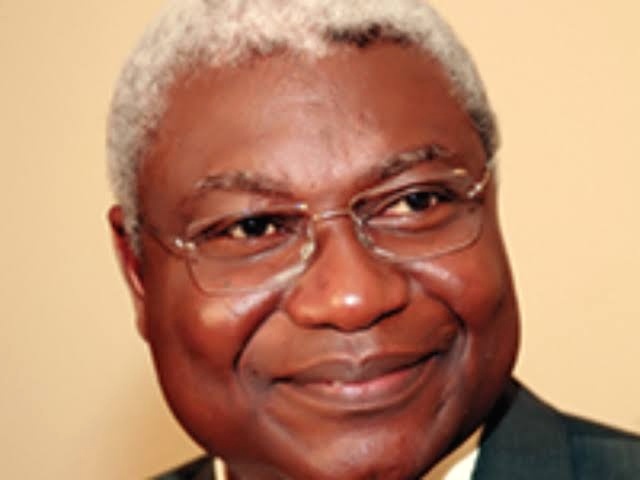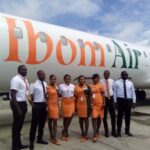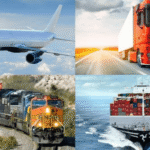A Nigerian business man and airline operator, Senator Musa Adede, has identified high taxation, poor and inadequate airport infrastructure as key factors that have retarded the growth of air transport in Nigeria.
Only about 15 million Nigerians travelled by air for both domestic and international destinations in 2024, the highest was 16 million in 2022. This number is considered very low, considering the fact that the Nigerian population is about 230 million according to estimates.
Adede who is the owner of Kings Airlines said one of the key factors that will help the aviation industry to grow is reduction of taxes and levies on passengers and airlines. This, he added, will improve airline profitability and reduce the cost of tickets.
He emphasised that Nigerian airlines faced high taxes and levies, which according to him, reduces profitability and inhibits their ability to make profits as they plough back all their revenues into their operations.
Adede also pointed out obsolete or inadequate infrastructure as the second factor that discourages growth in the aviation industry.
He said Nigeria ought to have a major Maintenance, Repair and Overhaul (MRO) facility establish with government incentives such as waivers from the Nigerian Customs Service (NCS).
According to Adede, “Nigeria ranks among the most expensive countries in Africa for air travel. According to the African Airlines Association (AFRAA) reports, we are third or fourth in charges. Meanwhile, countries like South Africa, Ethiopia, and Senegal modernised their airports during COVID-19, improving efficiency and passenger experience. To compete regionally, Nigeria must prioritise airport upgrades, streamline fees, and support airlines with domestic MROs and equipment concessions.
“So, there are key recommendations that will help the aviation industry. These recommendations are reduction of taxes and levies on passengers and airlines to improve profitability, support for domestic Maintenance Repair and Overhaul facility development through concessions and Customs exemptions; upgrade of airport infrastructure to international standards to include boarding bridges, lifts, conveyor belts, control towers, and air conditioning systems, ensure regulatory oversight remains transparent, consistent, and effective and there should be harmonisation of regional fees and procedures to support initiatives like the Single Africa Air Transport Market (SAATM).”
He acknowledged that Nigeria currently has MRO facility in Uyo, Akwa Ibom State, Execujet at Quits Aviation facility at the Murtala Muhammed International Airport, Lagos, dedicated for maintenance of private jets and the one owned by Aero Contractors. However, he said that while these maintenance facilities are in Nigeria, airlines still send their aircraft overseas.
Adede noted that sending aircraft abroad for maintenance is expensive and inefficient, noting that domestic facilities allow airlines to oversee maintenance work directly, reduce aircraft downtime, build local expertise and enhance safety.
“MROs handle avionics, wheels and brakes, landing gear and structural checks. Major inspections involve disassembling interiors, inspecting for corrosion, reassembling, and test flights. Government support through Customs concessions is vital to encourage investment and reduce costs,” Adede added.
He emphasised that having a major MRO in Nigeria was important because domestic MROs reduces capital flight, create jobs, and enhance safety by keeping aircraft maintenance local.
“Airline engineers can monitor work directly, ensuring quality and transparency. The government should provide incentives, such as Customs exemptions on equipment in order to encourage investment in MRO facilities. This supports training, local expertise development, and faster aircraft turnaround times. I am sure you have been to Dubai. Do you see the number of maintenance hangars? I don’t think the MROs we have, including what Air Peace is going to do, is too much. No, it’s not. Okay,” he said.
Adede reiterated that establishing domestic MRO is important because airlines spend so much ferrying their aircraft overseas for maintenance and also pay hugely to maintain their airplanes abroad.
“If you know the amount of money airlines spent to fly airplanes out of the country and fly them back. If you look at the fuel costs, if you look at the maintenance itself, if you look at the crew costs, landing, all of that; you will realise that having MRO here is good. To ferry a plane to and fro empty is costing you a lot of money. It’s not that when you ferry the airplane there for maintenance and they finish fixing the maintenance, another fault cannot develop. On your way back, you can lose your radar. If you are not too far from your point of departure, you may have to go back there for them to fix it because you can’t continue; let’s say, from Johannesburg to Lagos or from London to Lagos. It is impossible. But if you have the MRO here in Nigeria, you will understand the concept of an MRO. There are different departments in the maintenance organisation,” Adede further said.
He also spoke on dry leasing of aircraft by domestic airlines, which the Minister of Aviation and Aerospace Development, Festus Keyamo, rekindled after lessors unofficially blacklisted Nigerian operators. But Adede observed that although dry leasing of aircraft is good, but it is not the complete solution to fleet growth because airlines’ operational cost is still very high.
“Dry lease arrangements are a positive step, but not a complete solution. Airlines still face high operational costs due to taxes, levies, and infrastructure limitations,” he said.
Adede said there was need for government to upgrade the airports in the country, noting that the major airports in the country like the Lagos and Abuja airports still need transit facilities in order to operate as hub airports, which means that Nigerian airlines can carry passengers from West Coast and Central Africa to Nigeria and transit them to long haul destinations like London, India, Dubai, China, South Africa and others.
He said the Abuja airport needed a second runway in order to reduce delays and also have alternative facility in case incidents force one runway to close, the other will be operating; so, the closure of flight operations due to closure of runway will seize to happen.
Adede also said there was need to extend the Lagos airport runways 18L and 18R for 24 hours service. “Some other busy airports in the country can also have their services extended, as the Akanu Ibiam International Airport, Enugu was recently extended to 10:00 pm.”
He noted that many countries in Africa used the interlude of COVID-19 lockdown to upgrade their airports, “while some have added more facilities and others built new one in response to surging passenger growth in Africa and Middle East, as projected by the International Air Transport Association (IATA).”
“Airport upgrades are also essential. For example, runways 18L and 18R at Lagos could be extended for 24-hour operations. Many African countries have their airports efficiently modernised during COVID-19, but Nigeria has lagged behind. Upgrading MMIA and other airports involves relatively simple interventions. You add boarding bridges, conveyor belts, lifts, and air conditioning. These improvements enhance efficiency, safety, and passenger experience without requiring entirely new construction,” he added.






